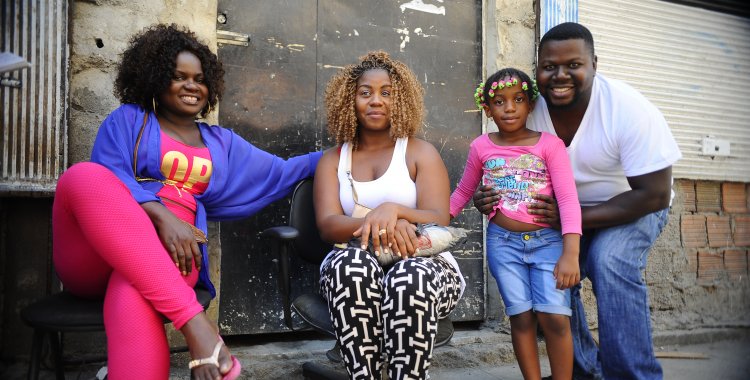Data sent to Lusa by the Municipal Secretariat for Social Assistance and Development (SMADS) of the São Paulo City Council indicate that last year 6896 foreigners, of 97 nationalities, were welcomed in public shelters.
"To get an idea of how the migratory flow has been increasing, especially of Angolans to São Paulo, in 2020 we had [the record of] 2,550 Angolans who came to São Paulo. In 2022, right after the pandemic, we arrived to 5 thousand. This year, [2023] we reached 3,390. In other words, it is a number that has been growing significantly every year", São Paulo's Secretary of Social Assistance and Development, Carlos Bezerra Júnior, told Lusa.
The data shows that Angolans made up at least half of the foreigners without a fixed residence living in São Paulo last year and that they ended up turning to public shelters in search of a place to live.
Asked about the reasons that motivate Angolans to seek a new life in Brazil's largest city, the secretary said that the majority claim to be fleeing political persecution, religious conflicts, violence, adverse economic conditions or are looking for medical care, the latter having reason attracted an important migratory flow of pregnant Angolans.
"[Angolans] end up coming to the city in search of better conditions, better possibilities for themselves and for the birth of their children", added the secretary.
Lusa was at the Centro de Acolhida (CA) – Scalabriniana, a Catholic mission that receives foreigners in the north of São Paulo in partnership with the City Hall, and found that in January the place housed 137 Angolans among around 190 welcomed.
Marcelo Macama Ngoma, 38 years old, a biomedical scientist who lived in Luanda, staying at the reception center, said that he had just landed in São Paulo and immediately looked for the shelter where he intended to stay until he found a job.
"I'm a senior technician, I have a degree in biomedicine and I came in search of better living conditions because things are not good in my country," he said.
The Angolan stated that his interest in migrating to Brazil began when he met some Brazilians at medical clinics where he worked in Angola and decided to move to the country to take up residence.
Lumengu Luamuifí, a 41-year-old Angolan, explained that she left her husband in Luanda and traveled to Brazil with two daughters with the intention of working in commerce, an activity she already carried out, and that she also intends to take up residence in the country, although she soon encountered difficulties The arrival.
"I thought I was going to meet one of my family here. [...] But from Angola, someone said that she was no longer here in Brazil, she had already gone to the United States", she said.
After landing and not finding anyone who could shelter her, the Angolan spent the night at the airport with her daughters, where she said she was helped by a woman who informed her about the reception centers that exist in the city.
Pedro Belarmino Makasa, 52 years old, explained that he is in Brazil looking for technical and professional development and, although he does not have a specific period of stay, he intends to return to Angola.
Makasa reported that he had contact with an Angolan friend who lived in São Paulo who said he could take him in, but when he arrived he learned that this friend had moved to the Brazilian state of Santa Catarina.
With no place to stay, he said he met a taxi driver and Angolan evangelical pastor who welcomed him for three days and then took him to a City Hall service center where he was then referred to the Centro de Acolhida (CA) – Scalabriniana.







